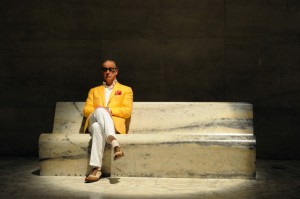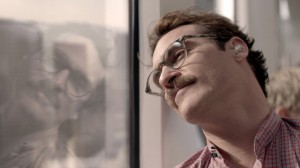AFI Fest, the American Film Institute’s annual film festival, has concluded at the Chinese Theatre in Hollywood. The Daily Bruin’s Sebastian Torrelio and Tony Huang attended until the festival’s close on Thursday, screening several of the biggest films being put up for audience award consideration and otherwise. On the sixth and final day of AFI Fest, Torrelio went on one last trip, seeing two films that push the boundaries of originality in delightfully entertaining ways.
 [media-credit name=”Janus Films” align=”left” width=”300″]
[media-credit name=”Janus Films” align=”left” width=”300″]
“The Great Beauty”
Directed by Paolo Sorrentino
Janus Films
The celebration that accompanied director Paolo Sorrentino’s screening of “The Great Beauty” was one of Italian film and heritage. As the official Italian submission for the best foreign language film category at this year’s Academy Awards, Sorrentino was distinguished heavily by members of the L.A. Italian film community and was brought onstage alongside famous Italian director Bernardo Bertolucci. After seeing Sorrentino’s latest work, the comparison to Bertolucci, notable for his Oscar victories as director and screenwriter of 1987’s “The Last Emperor,” is an easy one to make.
“The Great Beauty” stars Toni Servillo as Jep Gambardella, a smooth journalist who lives his life like a party in the wondrous city of Rome. Jaded by his success, which mostly comes from writing one literary masterpiece years prior, Jep wades his way through old age when his past returns to haunt him. This causes Jep to reassess his life, absorbing the wonders of the city he lives in and taking in the beauty of the world he has taken somewhat for granted.
Without much conflict to back it up, “The Great Beauty” continues as a tour through contemporary Rome, observing, criticizing and appreciating the culture and ravishing splendor that makes the city what it is. The film essentially works as an art piece about art pieces, Sorrentino delicately pervading over his environment and taking exhilarating steps to savour every possible moment he can get out of his actors.
Heavily compared to the legendary Federico Fellini, who had won the award Sorrentino is striving for four times in his career, Sorrentino meets his expectations well. His journey may be a bit long, indulging in Italian visuals to a redundant extent, but the satire he presents of the art he so dearly loves is hard not to recognize and join in the fun with.
 [media-credit name=”Warner Bros.” align=”left” width=”300″]
[media-credit name=”Warner Bros.” align=”left” width=”300″]
“Her”
Directed by Spike Jonze
Warner Bros.
Going into “Her,” I was told by a few friends and patrons who had been floored from the previous night’s screening (with Q-and-A by director Spike Jonze) to expect “this decade’s ‘Eternal Sunshine of the Spotless Mind.’” With such a challenging comparison, alluding to one of the best science fiction or romance films of the last decade, it’s a wonder how Jonze’s latest film, his first as the sole writer, splendidly exceeded my expectations.
Jonze’s masterpiece takes place In the technologically foreseeable future, where humans have developed artificial intelligence to a point where it can assist with practically every task imaginable. Theodore (Joaquin Phoenix) is a lonely man who decides to try out a new operating system (voiced by Scarlett Johansson) with the ability to communicate on a human level, adapting and evolving feelings and sentient understanding as it’s used.
“Her” plays out as an unorthodox love story as Theodore and his operating system, personally named Samantha, develop their relationship with one another. As far as romance tales go, “Her” pushes boundaries but does not explicitly go further than classics of the past have. Jonze leaves the exceptionality of his piece to the premise, an triumphantly aspiring tale of human interaction, psyche and life in a fictional world uncomfortably close to our reality.
It’s questionable how a film like “Her” hasn’t been made before, or if it has, how “Her” managed to best it in such a memorable way. As advanced as Theodore’s world is, it’s entirely believable, relating simple concepts and everyday tasks we do today with ease and advancements that in no way seem outlandish.
Though as believable as Jonze’s Tomorrowland is, even it pales in comparison to his grasp of human emotion, delicately weaving a humorous story that allows for abstract inquisition without overwhelming, and placing Jonze among the most admirably abstract filmmakers of the modern era.
